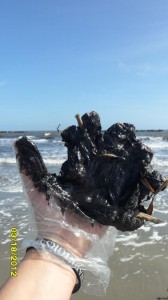http://usnews.msnbc.msn.com/_news/2012/03/22/10811855-drillers-environmentalists-not-buying-obamas-energy-pitch
Mandel Ngan / AFP – Getty Images
President Barack Obama speaks at the TransCanada Stillwater pipe yard in Cushing, Okla., on Thursday.
FirstRead on Obama’s support for Keystone’s southern leg
Data show increasing US oil supply won’t lower prices
Keystone pipeline could raise oil prices for some
By msnbc.com staff and news services
CUSHING, Okla. — Touting an “all-of-the-above” energy policy, President Barack Obama traveled to this oil town on Thursday to show his support for the southern leg of the controversial Keystone oil pipeline proposed from Canada to refineries along the Gulf Coast.
“I am directing my administration to cut through red tape, break through bureaucratic hurdles, and make this project a priority,” he said with dozens of pipes stacked up behind him at a yard used by TransCanada, the company proposing the Keystone pipeline.
But neither the oil industry, which insists Obama could send stronger market signals to lower prices at the pump, nor environmentalists, who cite the climate impact of fossil fuels, were on board.
“A true all-of-the-above energy strategy would include greater access to areas that are currently off limits, a regulatory and permitting process that supported reasonable timelines for development, and immediate approval of the Keystone XL pipeline to bring more Canadian oil to U.S. refineries,” Jack Gerard, president of the American Petroleum Institute, said in a statement. “This would send a positive signal to the market and could help put downward pressure on prices.”
Obama in his speech noted that domestic production has risen during his term. “America is producing more oil today than at any time in the last eight years,” he said. “Over the last three years, I’ve directed my administration to open up millions of acres for oil and gas exploration across 23 different states. We’re opening up more than 75 percent of our potential oil resources offshore. We’ve quadrupled the number of operating oil rigs to a record high.”
As for the overall Keystone project, Obama said the delay in the northern leg came about because Nebraska lawmakers — both Republicans and Democrats — raised concerns about the potential impact on the state’s water supply if a spill happened. “So to be extra careful that the construction of the pipeline in an area like that wouldn’t put the health and safety of the American people at risk, our experts said that we needed a certain amount of time to review the project,” he said Thursday.
Environmentalists, for their part, oppose the pipeline because it promotes the expanded use of fossil fuels, which emit greenhouse gases tied to global warming. The activist group 350.org planned to make that case by protesting Obama’s visit to Ohio State University later Thursday.
Some have even made the argument that Keystone’s southern leg won’t help domestic oil producers much since most of the oil will be coming from Canada.
It “simply is not designed to move significant volumes of domestic crude,” Anthony Swift, an international law attorney for the Natural Resources Defense Council, wrote in a blog post. “The 900,000 barrel per day (bpd) pipeline only has two comparatively small on-ramps in the United States,” he added, citing company documents filed with the U.S.
“The first, in Montana, includes an on-ramp for a maximum of 100,000 bpd of crude. The second in Cushing, Oklahoma, allows a maximum of 150,000 bpd … That means that at most, little more than a quarter of the oil on Keystone XL would be from domestic producers.”
Republicans dismissed Obama’s move as a publicity stunt that made little difference to the timeline of the southern project or the problem of U.S. energy security. “He’s taking credit for going forward on the only portion of the pipeline that he doesn’t need to approve,” said Sen. John Hoeven, R-N.D., at a press conference. “This is literally straddling both sides of the issue.” Hoeven has led the charge in the Senate to pass legislation that would bypass the administration and approve the full pipeline.
Construction of Keystone’s 485-mile southern leg is expected to start this spring.
TransCanada plans to submit a new proposal for the 1,200-mile northern leg, after which federal agencies will weigh in.
Reuters contributed to this report.
Special thanks to Richard Charter
